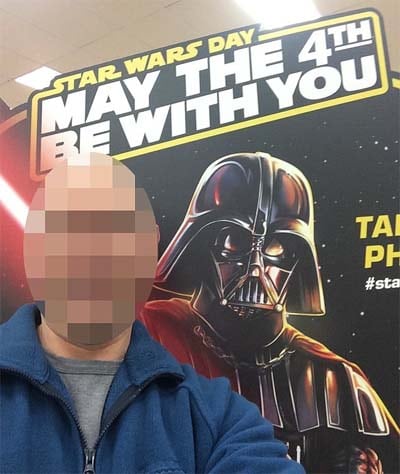Social media witch hunts – why you need to avoid them
We may have thrown away the pitchforks and replaced them with keyboards, but witch hunts are still very much as alive as they were hundreds of years ago.
Many will know the source of the term “witch hunt”; the term we use to describe the often baseless yet angry accusations thrown at people – often solitary women – unlucky enough to be suspected of devilry or witchcraft many centuries ago. Guided by panic and hearsay, fuelled by rage and terror. The accused did not enjoy the luxury of a fair hearing. It was guilty until proven innocent.
Hundreds of years later, little has changed.
Dubbed “Trial by Social Media”, online witch hunts work in very much the same way. The accused is identified, judged and condemned for an alleged transgression, and subsequently exposed to the angry, accusing townsfolk. There is no fair trial. No chance to hear both sides of a story. No critical analysis and no following the evidence. Once the bandwagon has started, it is very difficult to stop.
But online, where information can be disseminated across the globe in seconds, social media witch hunts put their offline equivalents to shame. To put it in colloquial terms, social media witch hunts are witch hunts on steroids. They go quicker, bigger and reach more people than their namesake witch hunts ever could. Instead of having dozens of angry voices baying for your blood, you may have tens of thousands. And the noise can be deafening. For those on the business end, duck and cover is often the only reasonable response.
While the accused is no longer burnt at the stake or drowned, the consequences can still be devastating. We ask our readers read the following information when thinking about sharing unverified information online that vilifies either an individual or collective.
Sponsored Content. Continued below...
Trial by Social Media condones vigilante justice
Either explicitly or by implication, “Trial by Social Media” is essentially a call to arms for those that work outside of law enforcement to take the law into their own hands. We are not only asked to judge, to harass, but sometimes to identify and condemn.
Resisting this type of behaviour can prove difficult. We may feel that the people identified in the photos could arguably deserve being shamed in the public arena and that by doing so we would discourage others from committing similar offenses.
Often, online witch hunts result from knee-jerk and impassioned reactions where we become the unwitting victims of our own emotions, only doing what makes us feel better in the short term rather than looking at the bigger picture.
Take for example the notorious PizzaGate conspiracy theory of late 2016 that purported a child sex ring tied to the US Democratic Party was operating out of a small Pizza restaurant in Washington D.C. based solely on the fact that a handful of Internet users believed that leaked emails from Democratic strategist John Podesta contained code words with secret meanings related to child pornography.
This led to an online speculation frenzy, and soon enough baseless accusations were being thrown in a variety of directions. It was only a matter of time before the consequences left the confines of the digital world and entered the real one. Several weeks after the online speculation started, a man took a gun into the restaurant and fired three shots. Luckily no one was injured and the man was arrested by police.

Edgar Maddison fired three shots at a restaurant he believed was harbouring child slaves before being arrested.
We live in a world with legal justice systems, and whether you agree or disagree with your legal system or with a specific sentence handed out, there is still never a place in any civilised world for vigilante justice, whether it’s online or offline.
And established legal justice systems are not just designed to deliver punitive sentences; they are also there to create a fair hearing so the truth will (or should) ultimately prevail and misinformation dismissed, which leads us to our next, very important point…
Trial by Social Media campaigns don’t get their facts straight
There is a reason vigilante justice doesn’t work. The baying mob is unlikely to have – nor care about – the facts. Within the curfew of a witch hunt, due process and unbiased investigation take second priority to wrath and the injudicious perception of justice. We see the bandwagon kicking into gear, and using the age old fallacy that the more popular a claim is the more likely it is to be true, we join in.
Which is why social media witch hunts usually have their facts wrong, or at the very least present only one side of an argument, omitting the inconvenient facts that disrupt the angry rhetoric.
Just ask the man who was incorrectly labelled a paedophile when he took a selfie of himself with some Star Wars merchandise. A mother – upon believing he was taking photos of children – snapped a photo of him and uploaded it to social media. The witch hunt began. The villagers lit their torches and dusted off their pitchforks. Death threats, insults and tens of thousands of shares later, the woman eventually realised her mistake and apologised. An apology that could have come too late if an online sleuth had worked out where he lived.

This innocent image managed to get this man in lots of trouble as a woman mistakenly believe he was photographing children.
Alternatively, ask anyone called Thierry Mairot, who likely faced a difficult time after an entirely false rumour claiming he was a sexual predator trying to seduce children on Facebook spread like wildfire, when thousands of Facebook users circulated the rumour without verification. Or perhaps ask David Calvert, who was at the tail-end of a Facebook campaign falsely identifying him as James Bulger killer Jon Venables.
Imagine is a false rumour falsely identified you, or a family member? Would you still want people to hit share “just in case it was true?”
Sponsored Content. Continued below...
Mistaken Identity?
Regardless if a Trial by Social Media post contains genuine information or not, they can still be dangerous to innocent individuals because of mistaken identity.
Viral posts containing names can lead to innocent people with the same name being abused and attacked.
Viral posts containing photos can lead to innocent people sharing similar physical characteristics being abused or attacked.
An example? Ask anyone who shares the same name as almost any modern day high profile murderer, when social media rumours are blindly passed from user to user incorrectly identifying Facebook accounts as the accounts belonging to the guilty. Ask James Holmes, who received constant abuse from Facebook users convinced – after seeing a Facebook rumour condemning his profile – that he was the Aurora movie theater killer.
Legal Influences
Legal influences. Particularly viral posts about real cases have the potential to influence legal proceedings. So if charges are ever bought against guilty parties, damaging and libelous posts can make it difficult to prosecute.
In high profile cases, “Trial by Social Media” could cause prejudice in jury pools which could potentially cause cases to be dismissed because of unfair trials.
You’re not immune online
The Internet may be more akin to the Wild West, which is why these witch hunts can still exist, but there is still a degree of responsibility that you must assume, by law. If you think that your keyboard presents you with some immunity over what you say and do, you’re mistaken. There is only the illusion of safety, and increasingly so, your anonymity is becoming only an illusion as well.
Libel suits that result over what people say and do on the Internet are surging. If you poke your pitchfork in the wrong direction, be wary of the consequences.
Internet culture needs to change
While our witch hunts have evolved and are now largely orchestrated through 21st century technology, it still represents a relic part of our human nature, and that needs to change. With the ability to bring our accusations in front of millions of people with a click of a mouse, witch hunts can reach more people, faster and easier than ever before.
Which is why we all need to be careful about what information we choose to share online, especially concerning information that vilifies, accuses and condemns others. The risks of collateral damage is just too high, and when we hit share, we don’t have the luxury of foresight.
It’s time to change the way the online culture thinks and behaves. Instead of just dreading the prospect of being the target of an online witch hunt, we should also now dread the prospect of participating in one.
Originally published March 2016, updated January 2017.
Continued below...
Thanks for reading, we hope this article helped, but before you leave us for greener pastures, please help us out.
We're hoping to be totally ad-free by 2025 - after all, no one likes online adverts, and all they do is get in the way and slow everything down. But of course we still have fees and costs to pay, so please, please consider becoming a Facebook supporter! It costs only 0.99p (~$1.30) a month (you can stop at any time) and ensures we can still keep posting Cybersecurity themed content to help keep our communities safe and scam-free. You can subscribe here
Remember, we're active on social media - so follow us on Facebook, Bluesky, Instagram and X
